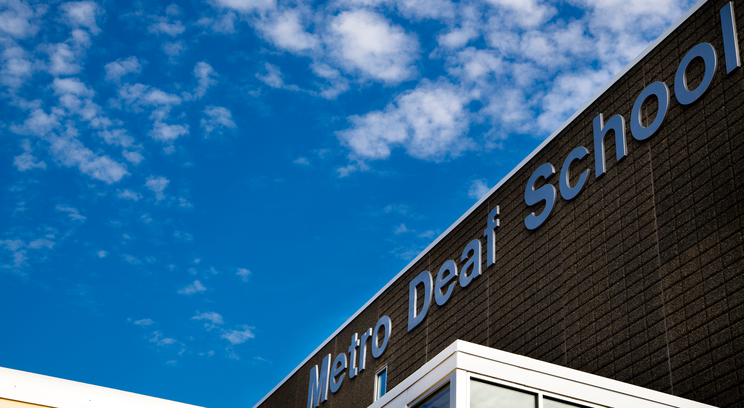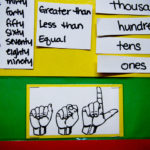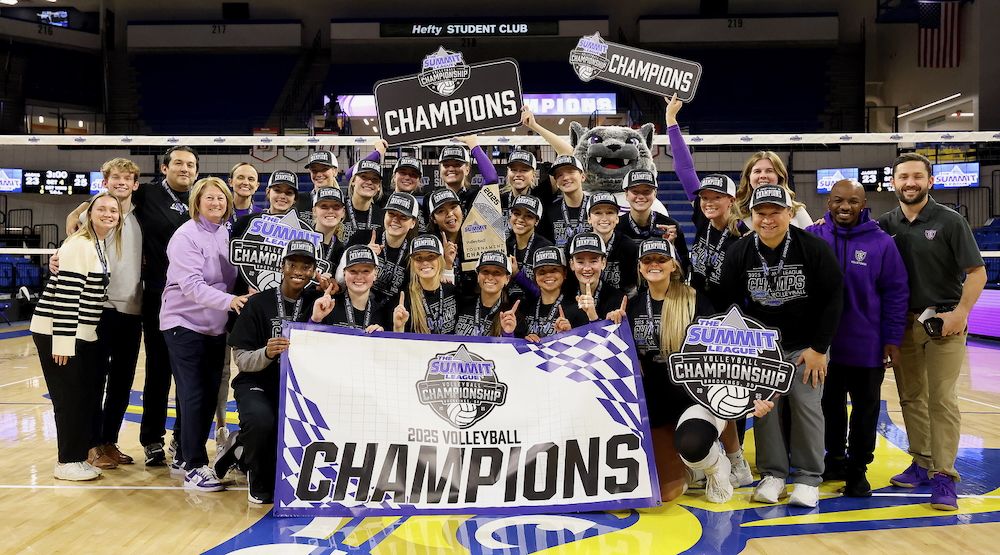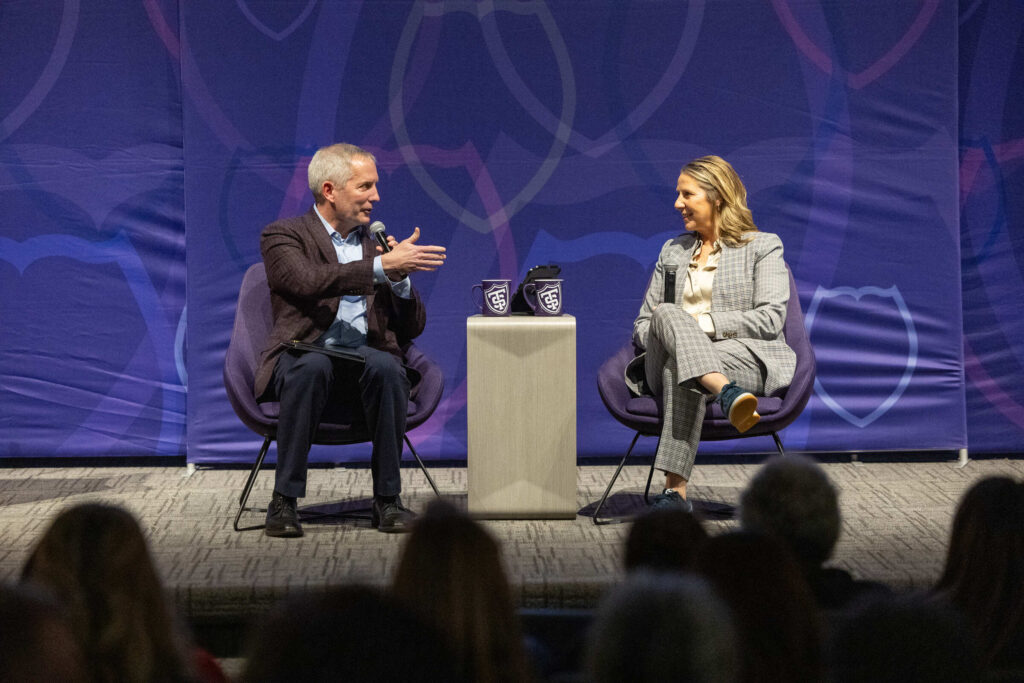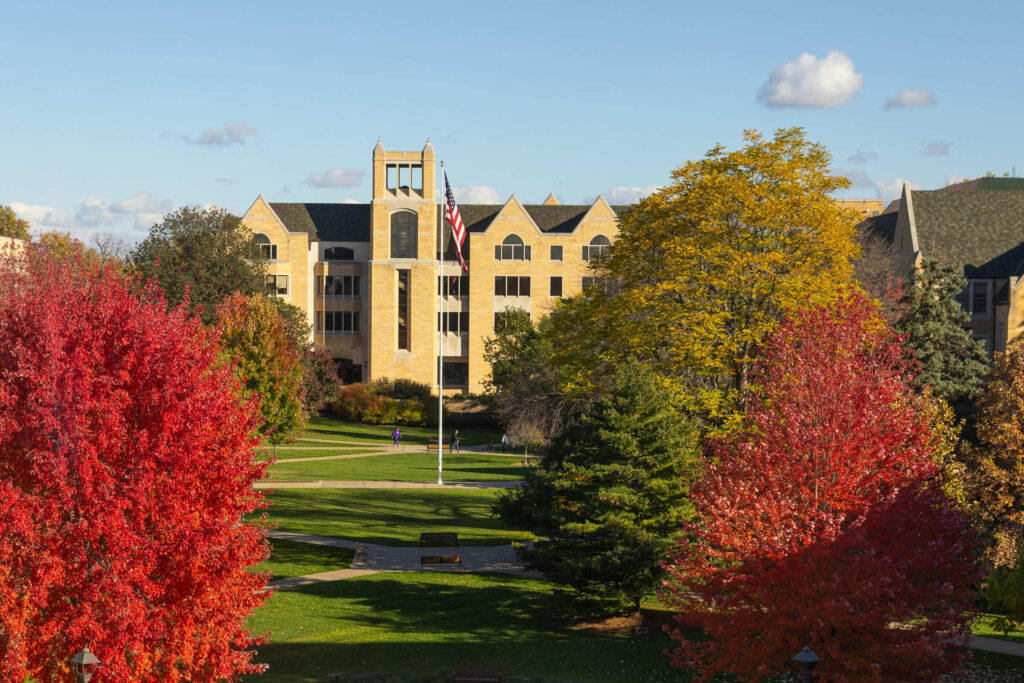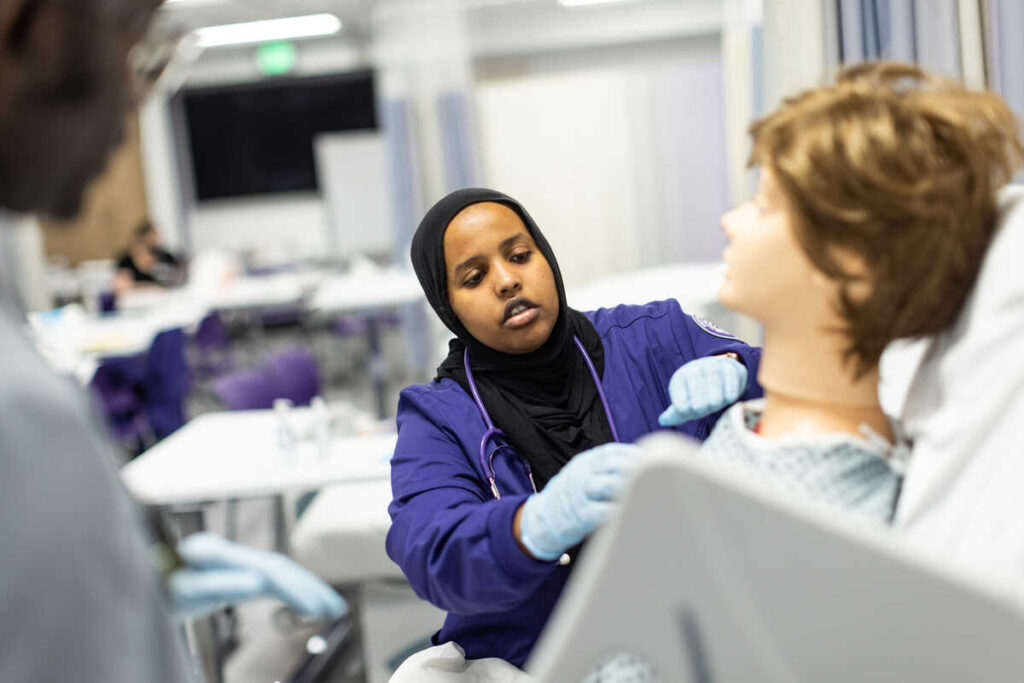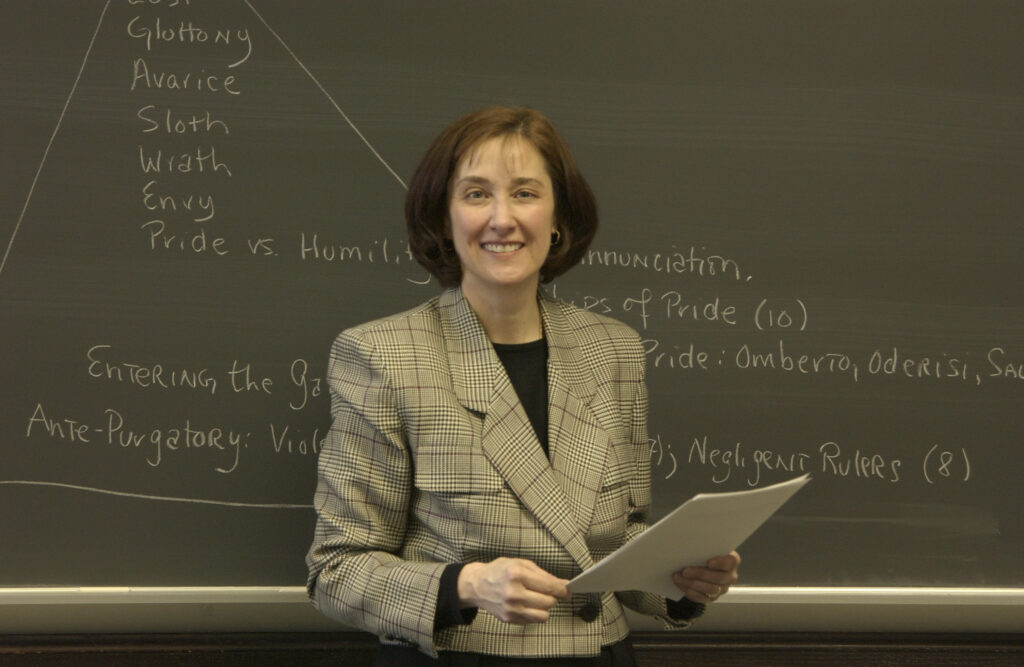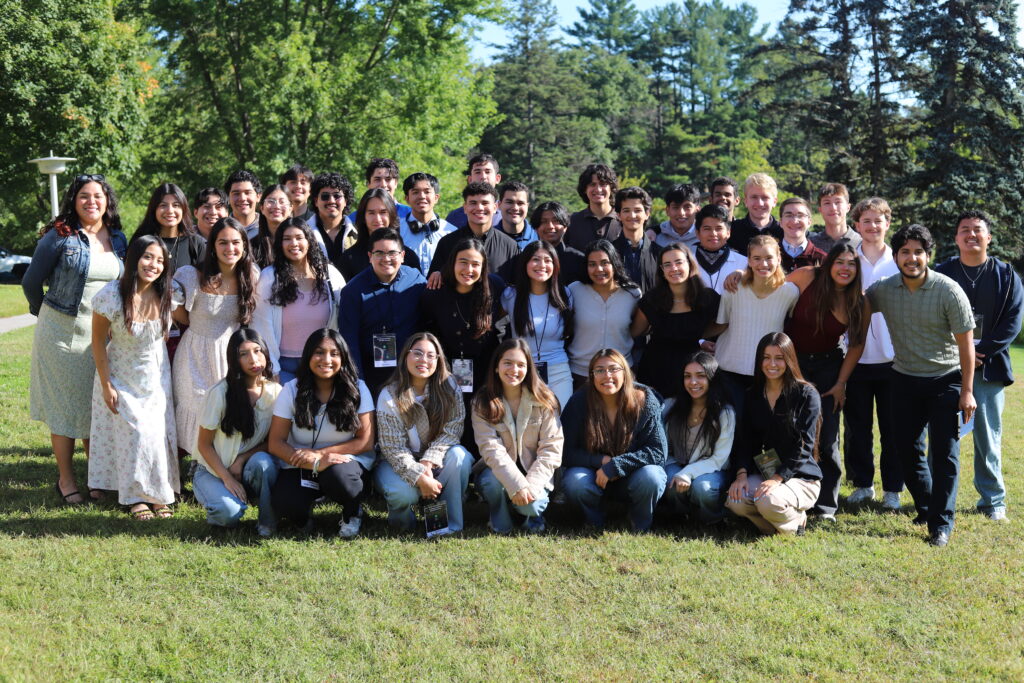A special place
“Metro Deaf School is a special place. You enter the school and you know you are in a special place.”
The words are those of Molly McGraw Healy, St. Thomas’ director of charter school authorizing. She was speaking about Metro Deaf School, believed to be the second oldest charter school in the nation, which became the university’s seventh charter school in July.
Special indeed. Metro Deaf School, 1471 Brewster St., St. Paul, is a bilingual school that serves pre-kindergarten through 12th-grade students who are deaf or hard of hearing and reside in the Twin Cities area and western Wisconsin. The school teaches both American Sign Language and English in print.
“Metro Deaf School serves a 100 percent special education population; all of the school's students are deaf or hard of hearing and have Individual Education Plans,” remarked Dyan Sherwod, executive director of the school. “Hearing loss does not limit the abilities of any student, and the school's philosophy is to serve and teach our students with the same set of expectations and rigor that any other public school would do with hearing students. MDS students attend school with like-peers who communicate through American Sign Language; learning, socialization and advocacy happens in a barrier-free environment because everyone signs and holds the success of each student near and dear to their hearts.”
But, Sherwood added, “Our students do not feel ‘special’; the stigma of being ‘pulled out’ for tutorial because they are ‘special education’ and therefore something ‘needs to be fixed’ is nonexistent at MDS; all of the needs of our students are met by an outstanding staff that the students interact with daily – building self-esteem and advocacy skills to empower our deaf and hard-of-hearing students occurs naturally throughout the day at all grade levels.”
A charter school, McGraw Healy pointed out, is a public school that receives funds from the state through a formula similar to that of any other district school but it is released from certain requirements that other districts have. “Essentially, when authorizers talk about this, we talk about it as the agreement to take on a higher level of accountability in exchange for a higher level of autonomy,” she said.
Becoming a charter school (or re-authorizing) is a lengthy process. Existing charter schools must receive permission from their current authorizers to seek a new authorizer.
The university utilizes a thorough, two-tier application process to vet potential transfer schools. The first step is to submit a letter of intent, which includes information on key criteria: academic performance, financial performance, annual reports and an audit for most recent fiscal year. “It’s a top-layer look at a school in a nutshell, to say, OK, you appear to be healthy academically, financially and organizationally, and tell us a little bit about yourself so we can see if there is a mission fit,” McGraw Healy explained.
Once the university’s Charter Accountability Board indicates an interest, the school prepares a full application, which includes additional narrative components about the school, three years of audits, three years of annual reports, and additional documentation. During this process McGraw Healy and several board members made a site visit and talked to parents, teachers, students, the school’s director and the school board chair.
The visitors were impressed, McGraw Healy noted, finding a unique school that was solid in terms of its performance, finances and organization. The board approved Metro Deaf School as the university’s seventh charter school on March 12, 2013, and received official approval of the transfer from the Minnesota Department of Education on June 6. The contract between the schools became effective July 1.
“I think the board felt that it would broaden our portfolio. It’s the type of school that we did not have represented in our group, and so I think that we felt that, No. 1, this is a school that’s critical to the common good in the Twin Cities. So that was a really powerful motivator,” McGraw Healy said. “It’s a school that we certainly would not want to see go away. We want it to remain strong and be able to continue to serve this need. No. 2, I think that we were really compelled by the fact that it is an excellent fit for our mission and they are really an excellent way for us to expand our own understanding of what it means to educate all students in ways that meet their specific needs and are academically rigorous. … The faculty on the board, I believe, felt that this would be a good way for us to see a part of education that we haven’t had a real pulse on with the other schools in our portfolio.”
And, she added, it fits the mission of the University of St. Thomas in a “positive and tangible way – working to improve the common good.”
Sherwood sees a similar fit between the missions of the two schools: “UST's mission aligns with the good work that the school provides for its students and families. Metro Deaf School works diligently to better the lives of its students, ensuring they are successful in and out of school. MDS sought UST as an authorizer because the school desired to work with an institution of higher learning that set the bar high, understood and valued the diligent work that educators do every day, working for the common good with the mutual desired outcome of creating successful, compassionate and confident learners.”
MDS offers after-school activities and sports to its students four days a week, which allows students socialization opportunities with their peers; participation in this program involves more than 70 percent of the student body. Parents at MDS are invited to be part of the school as well, with ASL classes, Literacy Nights and planned social opportunities offered throughout the school year.
The University of St. Thomas also is the authorizer for these six charter schools:
- Academia Cesar Chavez, St. Paul
- Community of Peace Academy, St. Paul
- HOPE Community Academy, St. Paul
- Main Street School of Performing Arts, Hopkins
- Twin Cities Academy, St. Paul
- Twin Cities Academy High School, St. Paul
